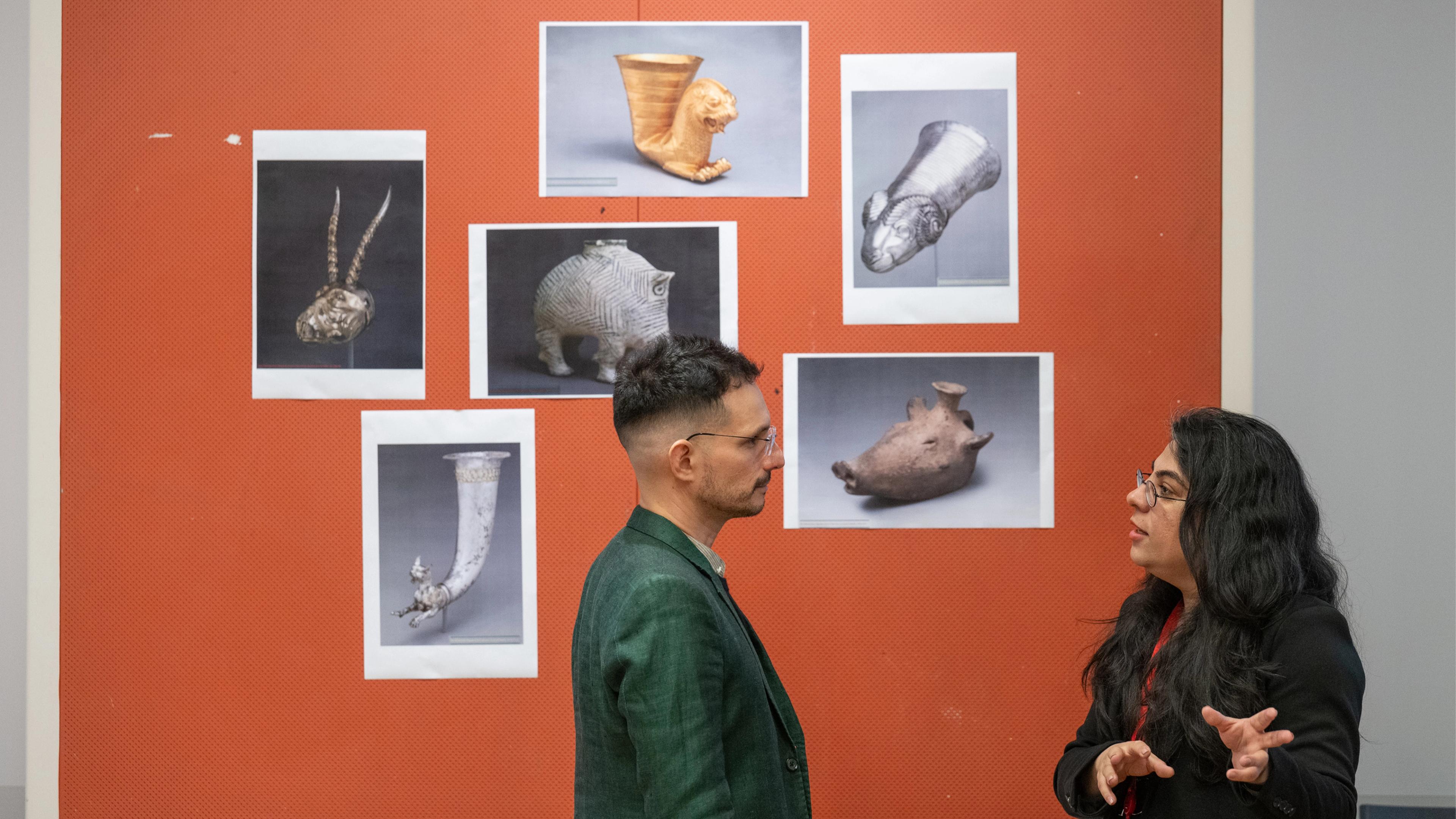Conservation Internships for Graduate Students
About the Internship
The Metropolitan Museum of Art’s Graduate Conservation Internship Program awards internships to students enrolled in advanced conservation programs as an integral part of their training. During the internship, graduate interns work alongside and learn from conservators under whose supervision they carry out in-depth treatment on a broad range of objects reflective of the expansive nature of the Museum’s collections. While the focus is on treatment, some analytical investigation may be carried out when relevant.
In addition to practical training, interns are immersed in The Met's community of interns through weekly intern programs. These sessions include discussions, talks in the galleries and presentations by staff from various departments.
Open to:
- Eligible applicants must be enrolled in a recognized graduate-level conservation training program within the United States of America that stipulates an internship as part of the degree requirements (exceptions may be considered for those in a program without a required internship year). Applicants must have completed at least three semesters of their training program.
- Ability to speak and write in English is essential.
International Applicants: Accepted interns are responsible for ensuring that they have valid legal status under applicable US visa regulations while participating in the Museum’s program. International students should know that although the Museum will act as your host institution, the Met does not sponsor visas for interns. If you require a visa, you may be eligible to participate in the Exchange Visitor Program (J-1 visa program) by going through an outside agency that has been authorized by the State Department to sponsor a J-1 trainee visa. These sponsors are responsible for supporting and monitoring foreign nationals during their exchange programs in the United States. We recommend that you consult with the U.S. embassy in your home country to determine which visa will allow you participate in this internship. Please be aware that obtaining a visa is usually a lengthy process and can cost upwards of $1,500 USD; it must be completed well in advance of the internship start date.
- $26 per hour
- All graduate student conservation interns will be eligible for benefits including medical, vision, and dental insurance; pre-tax commuter benefits; and others as outlined in the current non-union staff benefits guide.
Application period: November 10, 2025–January 9, 2026
Interview period: Late January/Early February 2026
Notification deadline: Late February/Early March 2026
Internship period: September 18, 2026–August 13, 2027
- Complete the online application. It will ask you to provide personal and academic information, write a short essay and upload a PDF copy of your curriculum vitae (CV).
- Curriculum Vitae: Upload your current CV as a PDF, saved as “LASTNAME_CV.pdf”
- Letters of Recommendation: Two confidential letters of recommendation must be submitted in addition to your application.These letters must come directly from your recommenders; they may not be sent by you. At least one letter should be from someone outside your academic program.
Note: Please see the application portal for a list of conservation departments currently accepting applications. Not all departments are open to applicants at this time.
If you have any questions, please contact collegeprograms@metmuseum.org. Please note that we are unable to provide status updates or amend application materials following the deadline. Please do not contact individual Met staff to inquire about internships.
What to Expect After Applying
Interviews of selected finalists and final notification will take place as specified below. Online interviews will be arranged:
- Interviews Take Place: Late January/Early February 2026
- Final Notification by Late February 2026
Life as a Met Intern

Seminar Series
Weekly seminars give interns an understanding of the wide range of work that occurs at The Met, and how Museum professionals collaborate to plan and support the daily operations of one of the world's largest museums.